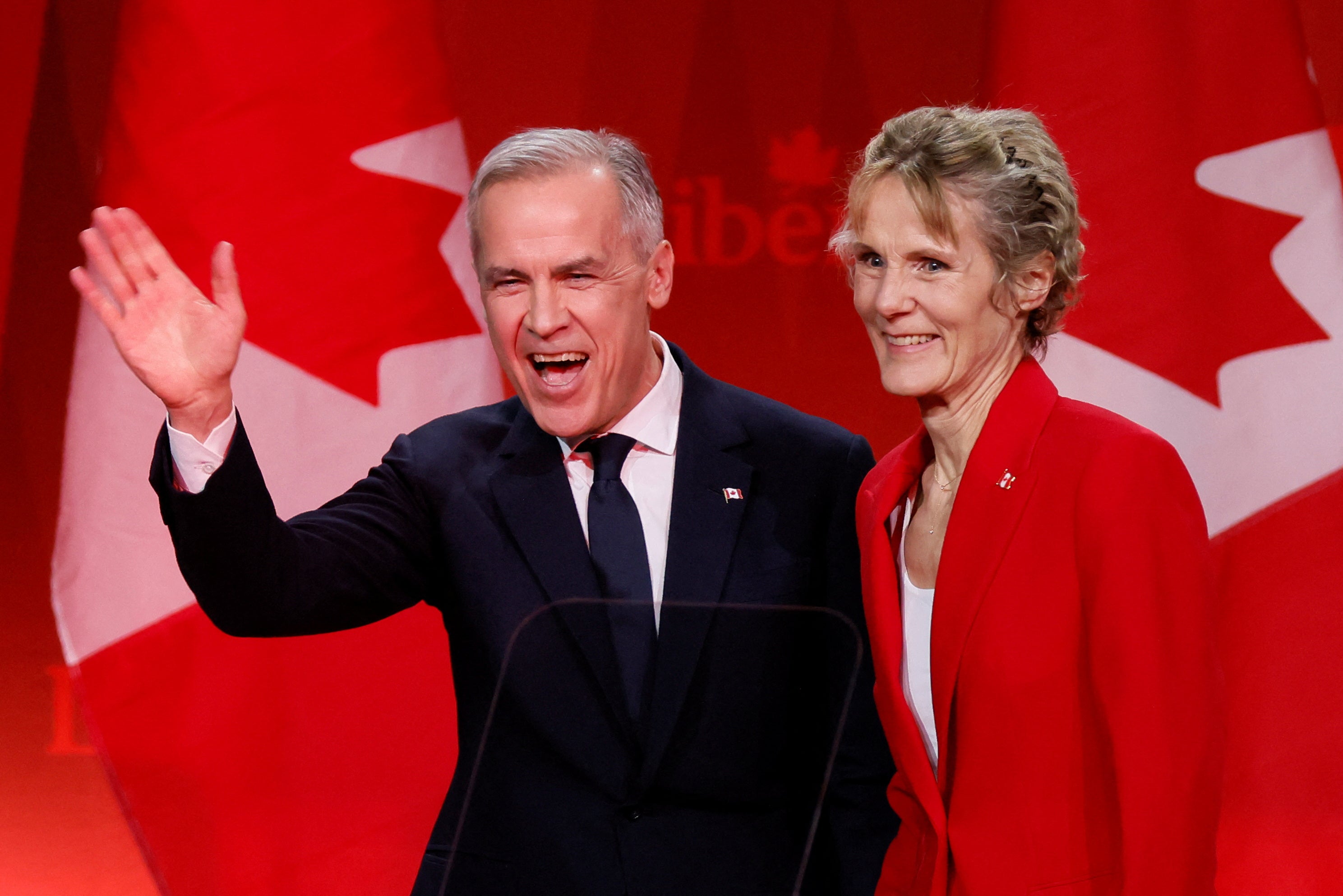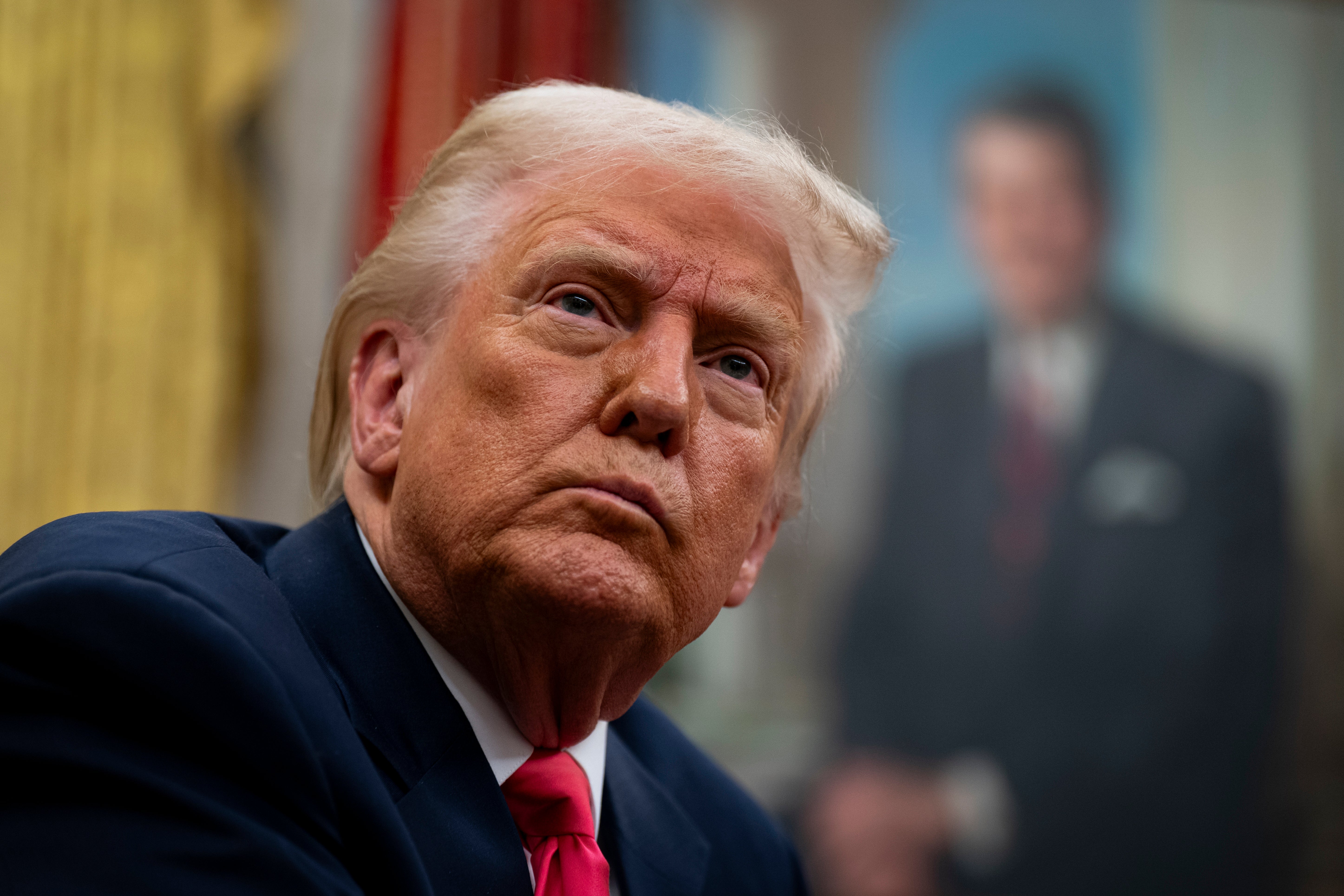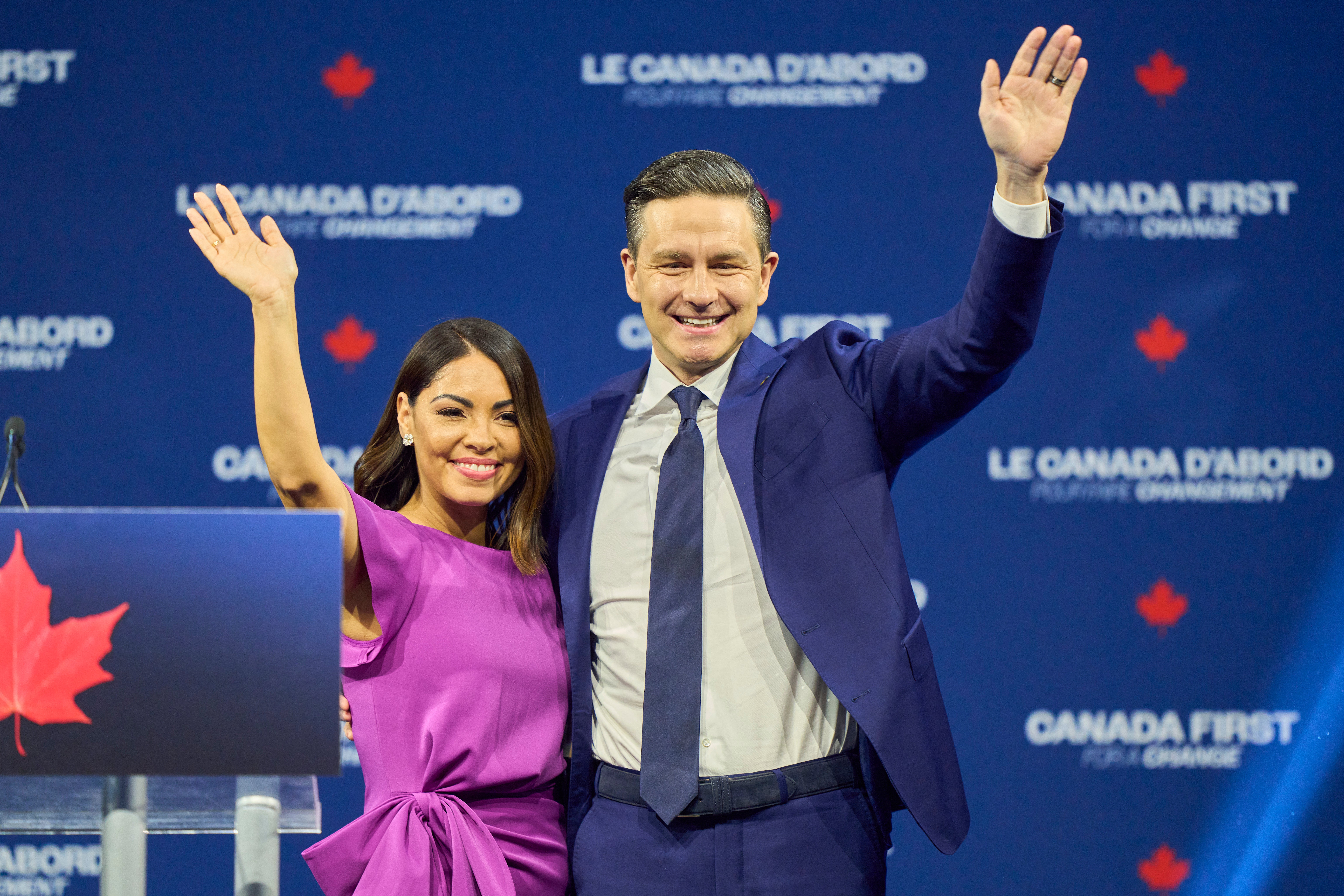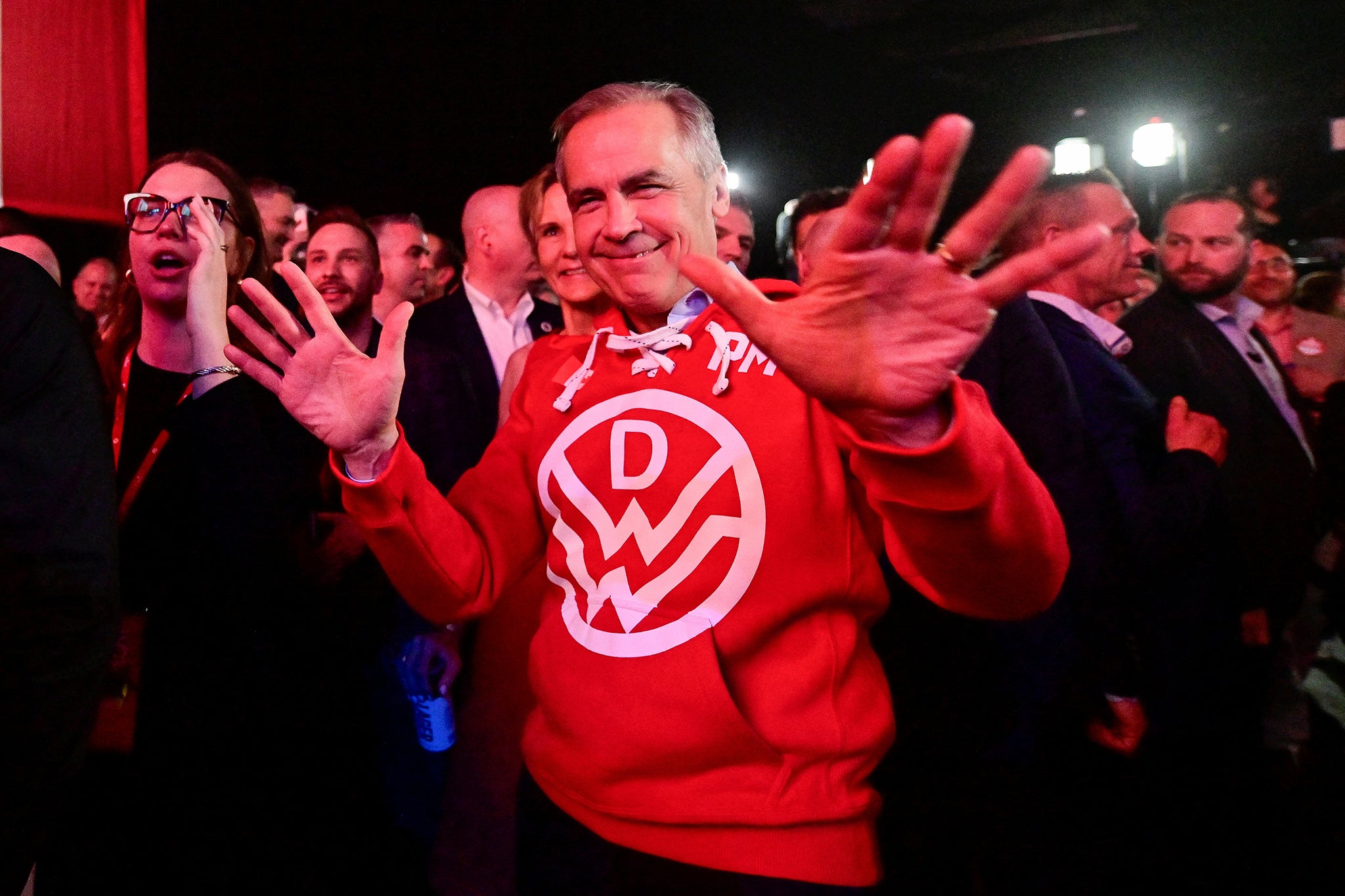Who is Mark Carney? Canada’s prime minister who won an election fighting back against Trump
Carney has promised to stand up for his country amid trade war with the US president
Prime minister Mark Carney's Liberal Party won Canada's federal election on Monday, capping a stunning turnaround in fortunes fuelled by US president Donald Trump's annexation threats and trade war.
Carney’s Liberals were projected by Canadian broadcasters to form a minority government. His party secured a dramatic fourth-straight term amid rising nationalist sentiment sparked by Trump’s threats to Canada’s economy and sovereignty.
In recent months, the former governor of the UK’s Bank of England has had to fight a war on two fronts. To the south he has had to contend with the Trump administration, which threatened then postponed crippling 25 per cent tariffs on Canada, as well as taunted the country with the outlandish possibility of making it the 51st US state.
Internally, Carney, 60, has had to convince Canadians he is different enough from his Liberal predecessor, Justin Trudeau, but remains the best person to helm the country.

As Trudeau put it during a goodbye speech earlier this year, Canada faces a “nation-defining moment.”
“Democracy is not a given,” Trudeau told a crowd in Ottawa. “Freedom, it’s not a given. Canada is not a given. None of those happen by accident. None of them will continue without effort.”
Carney put that to the test on Monday, in federal elections held just weeks after he came to power. Preliminary results were expected later on Tuesday, but the outcome already marked a remarkable comeback for the Liberal Party, which had appeared almost certain to lose to the Conservative Party, led by veteran politician Pierre Poilievre, just a few months earlier.
Here’s what you need to know about Carney, a man who’s already managed to influence the world stage for years despite never holding elective office.
From Canada to the world
Carney was born in Fort Smith, in the Northwest Territories, in 1965, and raised in the Alberta city of Edmonton, the child of two educators.
He won a scholarship to study in the United States and pursued an intensive education in economics and finance, with degrees from Harvard and Oxford universities.
From there, Carney served across the world as an executive at Goldman Sachs, with postings in London, Tokyo and New York.
He is married to Diana Fox, a British economist, and they have four daughters.
Carney eventually returned to Canada and ran the country’s central bank from 2008 to 2013 during the depths of the financial crisis, where his leadership and decision to quickly slash and then continue to hold down interest rates are credited with sparing the country from the worst impacts felt by other G7 nations.

Britain, Brexit and the Bank of England
Carney continued his rise on the world stage, in 2014 becoming the first non-Briton to lead the Bank of England in the institution’s over three-century history. He is credited with having modernised the Bank by doing more frequent media appearances than his predecessors, slashing the number of interest rate meetings from 12 to eight each year and publishing minutes alongside interest rate decisions.
While previous governors generally kept a low profile, Carney made a number of controversial interventions, including warning that an independent Scotland might have to surrender powers to the UK if it wanted to continue using the pound ahead of the 2014 referendum.
And ahead of the Brexit referendum, he warned that voting to exit the EU could trigger a recession in the UK. In the wake of the vote to leave the EU, following David Cameron’s resignation as prime minister, he addressed the nation as part of an attempt to reassure the public as the pound plunged.
Interest rates were later slashed from 0.5 to 0.25 per cent, and the Bank restarted its quantitative easing programme to support the economy.
His final week in the job fell at the start of the Covid-19 pandemic in March 2020, when the Bank cut interest rates to 0.5 per cent and Carney told the country that the economic shock "should be temporary".
He departed the role to serve as the United Nations envoy for climate action and finance.
A showdown with Trump (and Poilievre)
Trudeau announced in January he would step down after nearly a decade in office, and Carney announced his intentions to run that same month, pitching himself as a skilled technician with the economic knowledge to address Canada’s low growth and high cost of living.
“I’m not the only Liberal in Canada who believes that the prime minister and his team let their attention wander from the economy too often. I will not lose focus,” Carney told a hometown crowd in Edmonton. “Our growth has been too slow. People’s wages are too low. The federal government spends too much, but it invests too little. Middle-class taxes are too high.”

That message has grown considerably sharper since Trump took office, a period that’s flipped Canada’s long-term economic and political alliance with the United States on its head.
After his landslide victory, Carney promised to match any U.S. tariffs on Canada “until the Americans show us respect” and vowed to be a tough negotiator against Trump.
“We did not ask for this fight,” Carney said. “But Canadians are always ready when someone else drops the gloves. Make no mistake, Canada will win.”
His other fight will be with Canadian opposition leader Pierre Poilievre of the Conservative Party, who Carney has blasted as someone who “worships at the altar of Donald Trump.”

What has the reaction been to his win?
Carney’s opponent, opposition leader Poilievre, conceded defeat and congratulated the leader of the Liberal Party before adding that the Conservatives will “do our job and hold the government to account.”
“Change is needed, but change is hard to come by. It takes time. It takes work,” he said.
British Prime Minister Keir Starmer congratulated Carney on his win, noting that he welcomed his leadership on international issues. “I know we will continue to work closely on defence, security, trade and investment,” Starmer said in a statement published to X on Tuesday.
The President of the EU Commission, Ursula von der Leyen, said on X that she looked forward to working closely with Carney before adding: “We’ll defend our shared democratic values, promote multilateralism, and champion free and fair trade.”
What happens now?

In his victory speech, Carney mirrored the theme of his election campaign, focusing on the future of relations between the U.S. and Canada.
“Our old relationship with the United States, a relationship based on steadily increasing integration, is over,” he told a crowd of supporters in Ottawa.
“We are over the shock over American betrayal. But we will never forget the lessons. As I've been warning for months, America wants our land, our resources, our water, our country.”
Carney said he plans to sit down with President Trump to discuss the economic futures of both sovereign nations.
The Liberal leader vowed to take a tougher approach to tariffs and said the country will need to spend billions to reduce its dependence on its neighbour.
"We can give ourselves far more than the Americans can ever take away," Carney said. "The coming days and months will be challenging and will require some sacrifices, but we will share those sacrifices by supporting our workers and our businesses."
The newly elected leader stated that his priority is to create thousands of skilled jobs and to make Canada a global leader in both clean and conventional energy.



Join our commenting forum
Join thought-provoking conversations, follow other Independent readers and see their replies
Comments